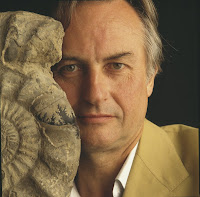“How can you ask that? He’s probably only one of the most famous scientists in the world!”
I don’t advertise myself as an actor, even though I was an extra once. Or as an artist, even though I did some cartooning some time ago. And I even got paid for it.
Dawkins has a doctorate in science, is a great synthesizer of other people’s science, one of the greatest advocates for science around, but when was the last time he did any original science? When did he last analyze any data?
How about Randy Olson? He also has a doctorate, was a proper professor, but went to Hollywood and hasn’t published a peer-reviewed paper in years, as far as I know.
Or Sam Harris, who I talked about yesterday? Two publications? There are some undergrads with two publications. That’s not the typical track record of a professional scientist.
The “general public” is famously unable to name a single living scientist. That they cannot may be due in part to a lot of people being described as scientists when they are not actively involved in science.
Professional scientists have clear marching orders: Test hypotheses by generating data, and publish the results. (Yes, I know theoreticians don’t necessarily generate their own data, so don’t come bugging me.) Should scientists, as a profession, be a little more assertive about who gets to use that professional label?
Additional, 26 April 2014: Nina K. Simon reflects on the relationship between names and expertise. As usual, she is more thoughtful and viewing it as a higher level than I do here.
All of this makes me think three basic things about how we name ourselves:
- It’s personal. Even if you think you have the way to define who is an artist or a scientist or an expert, each individual may still choose to affiliate (or opt out) based on his/her own standards.
- It’s relational. The things we call ourselves and each other do impact the way we see and treat each other.
- It could be much richer and more expansive. A word like “artist” is a heavy hammer to impose on every nail. If the Eskimos have fifty words for snow, can't we have fifty words for artist? (Or scientist. - ZF) If we can add more nuance to the ways we name ourselves, we can move from debate to dialogue about the opportunities inherent in a diverse and complex world.
Additional, 11 September 2017: Sheril Kirshenbaum is running a poll on Twitter about what the minimum qualifications are to call someone a scientist.


No comments:
Post a Comment